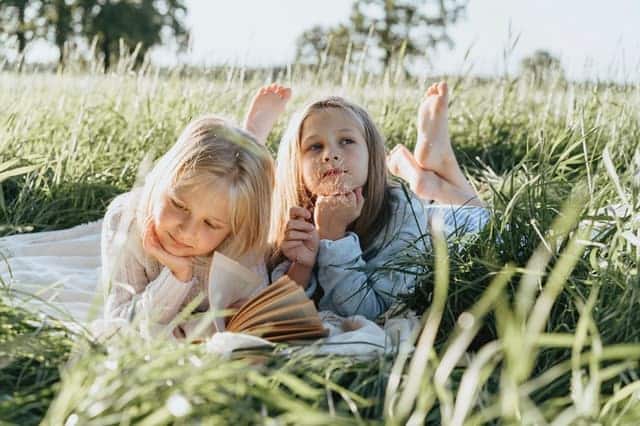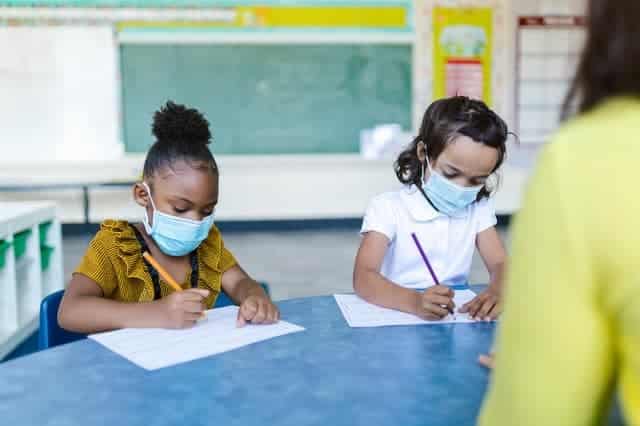Whether you’re a student, teacher, or in another profession, self-awareness is a skill we must all cultivate. For children, specifically, it can be used as a management tool to help them evaluate their own mental and emotional well-being.
When we teach children how their thoughts, values, and emotions interact with and affect their behaviors, they’re equipped with the ability to assess their strengths and weaknesses accurately (Positive Action). When children begin to understand themselves, their confidence, drive, and desire to succeed increase.
Currently, the World Health Organization lists self-awareness as one of the top 10 life skills that promote well-being across cultures (WHO). Other critical skills include:
- Empathy
- Critical thinking
- Creative thinking
- Responsible decision making
- Problem-solving
- Effective communication
- Interpersonal relationships
- Coping with stress
- Coping with emotions (Positive Action)
This article will explain self-awareness and the two main types of self-awareness skills that are most helpful for children. In addition, we include five ways to teach self-awareness skills to kids.
What is Self-Awareness

Self-awareness is characterized by the ability to look inward and clarify our values, feelings, thoughts, behaviors, strengths, and weaknesses. It allows us to evaluate whether our thoughts, feelings, and behaviors align with our values. When they don’t, we can improve our behavior through self-correction. When they do, we experience the pleasure of cognitive consonance, which reinforces the agreement between our actions and values.
Additionally, when we are self-aware, we can understand our effect on others. If we are negatively impacting those around us, we can adjust our behaviors. Conversely, we can continue behaviors that serve others well and benefit our relationships.
Self-awareness also leads to accurately determining how others perceive us. This crucial understanding helps children develop self-esteem.
Each facet of self-awareness helps children develop appropriately throughout their lives.
Types of Self-Awareness Skills
There are two different types of self-awareness: public and private.
Private self-awareness relates to how we reflect on ourselves internally.
People who have a strong sense of private self-awareness are conscious of their thoughts and feelings. When they feel some ambiguity concerning their beliefs, they can use mindfulness skills to cultivate greater self-awareness.
Private self-awareness is associated with higher job and relationship satisfaction and relief from anxiety, stress, and depression (HBR). Children who experience private self-awareness can maintain a state of peace within themselves by being present and noticing thoughts and feelings objectively. One example of this self-awareness includes being aware that you tense up during phone calls and then choosing cognitive behavioral actions to release that tension (BetterUp).
The second type of self-awareness is public self-awareness.
Public self-awareness relates to our ability to notice how we appear to others. By developing a strong sense of interpersonal consciousness, we can help strengthen our work relationships and job prospects. We can do this by adjusting our behaviors and appearance to adhere to social norms and behave in socially expected ways (BetterUp).
There is, of course, a balance between being aware of what others think and worrying too much about others’ perceptions. The key to a healthy amount of self-awareness lies in our ability to recognize our strengths and challenges accurately.
Benefits of Self-Awareness Skills
There are many benefits to self-awareness. Some of the most common are listed below:
- We become more confident and more creative (Harvard Business Review)
- We have the strength to make better decisions
- We build stronger relationships and communicate more effectively
- Our self-esteem grows as we learn who we are and how others perceive us
- We are more likely to receive promotions and to hold leadership positions
- We are less likely to lie, cheat or steal
- We tend to be more effective leaders with more satisfied employees (HBR)
- We enjoy an improved sense of control
- We experience freedom from biases and assumptions (BetterUp)
Self-Awareness Activities for Kids

We can help children develop self-awareness. Here are some easy activities you can implement into your students’ or children’s daily routines to enhance their self-awareness:
- Have students keep a thought diary. They can record their feelings, thoughts, and emotions, as well as their emotional reactions to unexpected or significant events. (Positive Psychology)
- Write a regret letter. Your student can write to her former self about any regrets she may be harboring, and forgive herself for making mistakes. This develops self-awareness and self-love.
- Have students write a list of things they like about themselves. For example, “I am artistic” is perfect for younger students. Push harder for older students. Encourage them to list at least five things.
- Have students create a goal they would like to reach within one year. Then, ask students to write down the steps they need to attain the goal. Afterward, encourage students to draw a picture of themselves succeeding. Revisit this project and celebrate the students who tried or succeeded at the end of the year.
- Break students into small groups (no bigger than three). Have each student identify their strengths. Students can practice their listening skills and build confidence and cohesion within the group.
There are a plethora of ways to teach self-awareness skills. Whether you are teaching or parenting younger children or older students, Soul Shoppe also offers several courses and resources on this topic.
Soul Shoppe provides social emotional learning programs for schools, homes, and businesses. Contact us here.
You May Also Like:
How To Teach Empathy To Kids and Teenagers
Conflict Resolution Games for Kids
Virtual Social Learning Activities
Sources:
BetterUp, Harvard Business Review, Positive Action, Positive Psychology, WHO


